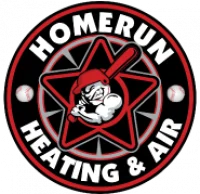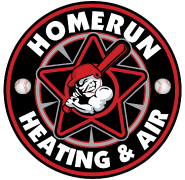As the sun beams down on the stunning Rocky Mountains, many Boulder residents are familiar with the warmer temperatures and the need to keep cool indoors. However, when the air outside feels hot and stuffy, it’s easy to overlook an essential element of comfort: the quality of the air inside your home. It’s common to focus on staying cool with air conditioning, but did you know that indoor air quality (IAQ) is just as important to your overall health and well-being?
In Boulder, CO, with its fluctuating temperatures, mountainous terrain, and high elevation, indoor air quality can sometimes be compromised during the hot summer months. Dust, allergens, stagnant air, and inadequate ventilation can all take a toll on your home’s environment. So, how can you make sure the air you breathe indoors is fresh, clean, and healthy, even on the hottest of days? Let’s explore some key steps to improve your indoor air quality during those hot, stuffy summer days.
Why Indoor Air Quality Matters
Before diving into solutions, it’s essential to understand the importance of indoor air quality. Poor air quality can have several negative effects, from short-term discomforts like allergies and headaches to long-term health issues like respiratory problems, asthma, and even cardiovascular diseases. According to the Environmental Protection Agency (EPA), indoor air can be more polluted than outdoor air, sometimes by as much as five times. In an area like Boulder, where outdoor allergens such as pollen and wildfire smoke can be prevalent, the quality of your indoor air becomes even more important for maintaining a healthy home.
Additionally, the hot summer weather in Boulder brings about changes in air circulation. With the windows closed to keep cool, fresh air is often trapped inside, causing pollutants to accumulate. It’s vital to address these indoor air quality issues to ensure a comfortable and safe environment for you and your family.
1. Keep Your HVAC System Well-Maintained
Your HVAC system plays a pivotal role in regulating indoor air quality. During the summer months, it’s essential to ensure that your air conditioning (AC) system is running efficiently and properly maintained. A well-maintained HVAC system can help filter out dust, allergens, and pollutants while maintaining good airflow. Here are a few ways to optimize your system’s performance:
Clean and Replace Air Filters
The air filters in your HVAC system trap dust, pollen, pet dander, and other particles, preventing them from circulating throughout your home. Over time, these filters can become clogged, reducing airflow and increasing the amount of airborne particles in your home. Regularly replacing or cleaning your filters (usually every 1-3 months) can drastically improve your indoor air quality.
Schedule Regular HVAC Maintenance
Having a professional HVAC technician inspect your system annually ensures that all components are working optimally. During a maintenance visit, the technician can clean coils, check refrigerant levels, inspect ducts, and identify any potential issues before they become more significant problems. This proactive maintenance can improve the overall efficiency of your system and maintain better indoor air quality.
Upgrade to a High-Efficiency HVAC System
If your HVAC system is older, it may not be as effective at filtering out airborne particles. Consider upgrading to a high-efficiency HVAC system with improved filtration. Many modern systems come with advanced air filters, such as HEPA filters, that capture smaller particles and improve indoor air quality significantly.
2. Use Air Purifiers to Improve Air Quality
While your HVAC system can help with overall air circulation, using standalone air purifiers is another excellent way to improve indoor air quality. These devices work by trapping harmful particles like dust, smoke, pet dander, and pollen, filtering the air in specific rooms. If you live in an area with heavy pollen counts or frequent wildfires, an air purifier can be particularly useful in removing outdoor pollutants that infiltrate your home.
Choose the Right Air Purifier
When selecting an air purifier, look for one equipped with a HEPA filter, as it can capture 99.97% of airborne particles as small as 0.3 microns. Additionally, make sure to choose an air purifier with an appropriate coverage area for the room where it will be used. Using air purifiers in high-traffic areas such as the living room or bedrooms can provide immediate relief for those suffering from allergies or respiratory issues.
3. Increase Ventilation and Airflow
Proper ventilation is key to reducing the buildup of indoor pollutants and preventing stuffy, stagnant air. In Boulder, where outdoor air quality can fluctuate due to pollen counts or wildfires, it’s essential to adjust your ventilation strategy based on the air quality outside. Here are some ways to improve ventilation in your home:
Open Windows When Possible
On days when the outdoor air is free from pollutants, open your windows to allow fresh air to circulate throughout your home. The crossflow of air helps to dilute indoor pollutants and refresh the environment inside. However, be cautious during allergy season or when wildfire smoke is present—this is when indoor air quality becomes most important.
Use Exhaust Fans in Bathrooms and Kitchens
Exhaust fans help remove moisture, odors, and contaminants from areas like bathrooms and kitchens. These spaces tend to accumulate humidity, which can promote mold and mildew growth if not ventilated properly. Turn on your bathroom and kitchen exhaust fans when cooking or showering to reduce excess moisture and maintain a healthier environment.
Consider an Energy Recovery Ventilator (ERV)
If your home tends to get stuffy even with the windows open, an ERV system might be a great solution. These devices help improve ventilation by bringing in fresh outdoor air while exhausting stale indoor air. They also recover energy from the outgoing air to precondition the incoming air, helping your home maintain a comfortable temperature without wasting energy. This is especially useful during hot summer days when you don’t want to open the windows for extended periods.
4. Control Humidity Levels
In the hot summer months, indoor humidity can rise, especially if you’re using air conditioning or cooking often. High humidity levels can encourage the growth of mold, dust mites, and bacteria, which can further degrade air quality. Maintaining proper humidity levels is crucial to improving indoor air quality.
Use Dehumidifiers
Dehumidifiers are great tools for maintaining the right level of moisture in the air. They can be placed in basements, bathrooms, or other humid areas to remove excess moisture. Ideal indoor humidity levels should be between 30-50%. If you notice condensation on windows or a musty smell, it’s a good sign that your home may be too humid.
Monitor Humidity with a Hygrometer
To ensure that your indoor humidity is within a healthy range, use a hygrometer to measure the moisture levels in the air. Many models are affordable and easy to use, allowing you to monitor humidity levels in different rooms.
5. Remove Common Indoor Pollutants
There are several pollutants that commonly circulate indoors, from cleaning products to pet dander to tobacco smoke. While some are unavoidable, there are steps you can take to reduce their impact on your indoor air quality.
Avoid Smoking Indoors
Cigarette smoke is one of the most harmful indoor pollutants. If you smoke, it’s essential to do so outside to avoid contaminating your indoor air. Even secondhand smoke can have detrimental effects on your health and air quality.
Use Non-Toxic Cleaning Products
Many traditional cleaning products contain harsh chemicals that can off-gas and contribute to poor indoor air quality. Opt for non-toxic, eco-friendly cleaning products to reduce the presence of volatile organic compounds (VOCs) and other irritants in your home.
Keep Your Home Clean and Dust-Free
Regular cleaning can help reduce the buildup of dust, pet dander, and other allergens. Use a vacuum cleaner with a HEPA filter to trap dust and allergens as you clean floors, carpets, and upholstery.
For Indoor Air Quality Services in Boulder, CO, Contact Homerun Heating & Air Today
Improving indoor air quality during the hot summer months in Boulder doesn’t have to be a challenge. By implementing these simple steps—maintaining your HVAC system, using air purifiers, improving ventilation, controlling humidity, and removing common pollutants—you can create a healthier and more comfortable living space for you and your family.
If you’re looking for professional assistance to enhance your indoor air quality, Homerun Heating & Air is here to help. Our expert team provides comprehensive HVAC services, including air quality assessments, HVAC maintenance, and air purifier installations. Trust us to help you breathe easier in your home.
Contact Homerun Heating & Air today to schedule a consultation and take the first step toward a cleaner, healthier home environment!

